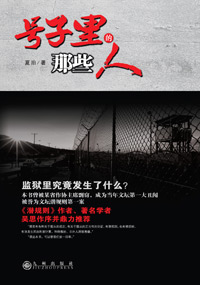Prison's unwritten rules: the people in the cell
The novel tells the story of a young man in the 1970s who was wrongfully imprisoned. It recounts the people and events he witnessed during his imprisonment, as well as his escape across the border to Vietnam to "resist America and aid Vietnam." After being captured, he encounters a Vietnamese female prisoner in a Vietnamese jail. The novel delves deeply into the lack of legal systems in the prisons of that era, as well as the unspoken survival rules within them. It reveals the humiliation and trampling of human spirit and body in daily life activities such as eating, drinking, defecating, urinating, and sleeping, while also showcasing the glimmers of humanity and persistence.
**Part One: Life in the Cell**
In a world dominated by power, freedom can be adjusted at will. A detention center differs from a prison; there are reflection cells in the prison, and within these cells, there are those who wear shackles and those who do not. The ankle chains come in different weights. There are also propaganda teams, boiler rooms, mouth gagging cloths, and return ropes. The levels of freedom and restriction are quite diverse. The size of one's freedom is closely related to the satisfaction of desires such as eating, drinking, defecating, urinating, and sleeping. People seek benefits and avoid harm, flatter power, form cliques, compete with each other, and cooperate, weaving rich and colorful stories.
**Part Two: Life in the Cell**
I was detained for more than three months in the district branch detention center, where the "bitter remembrance meal" under the "proletarian dictatorship" left me as slim as a stray dog that had wandered the streets for over six months, looking like its cancer cells had spread everywhere. My "cellmates" said I had "three fasts": my butt moved faster than a cone, my spine sharper than a blade, and I could lie down quicker than I could get up. They also said my vertebrae stuck out like sugar-coated haws on a stick.
**Part Three: Life in the Cell**
Mr. Lü placed his hands behind his back and said slowly but firmly: "You think carefully: whose hands hold your lives? Let me tell you: it’s not King Yan (the god of death), nor the black and white impermanence, or the ox-head horse-face. It's Mr. Lü, it's me who holds your lifelines. Understand? The handles of knives, guns, and seals are all in Mr. Lü's hands, and Mr. Lü can do whatever he wants!"
**Ebook Download Link for "The People in the Cell":** [http://www.tombit.cn/soft/html/3659.html](http://www.tombit.cn/soft/html/3659.html)
**Original Article Source:** [http://www.tombit.cn/article/html/2645.html](http://www.tombit.cn/article/html/2645.html)
